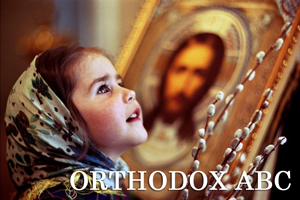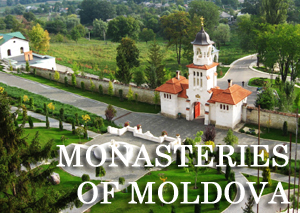
By priest Constantin Cojocaru
If we put Christ into the very core of our life, if we penetrate into Christ’s words full of wisdom, teaching every Christian to love his neighbour, if we follow the examples of Holy Apostles and of Holy Fathers, we will never need any Family Codes, or, further, any Civil Rights acts, matrimonial contracts, and other documents regulating relations between people in a voluntary union. All they do is trying to replace the Divine Wisdom in our lives. Christians have one great Lawmaker – Jesus Christ, for in Him dwells all the fullness of the Godhead bodily (Col. 2, 9). Apostle Paul called Jesus the Archpriest of our Church, according to the order of Melchizedek (Hebrews 5,6). Christ is the guideline Himself, to whom every Christian should align. To do this, every single person should put Christ right into the centre of his own life. A family is a union of at least two persons. If Christ is the core of every individual person, He naturally becomes the core of this union. Messiah Himself said, that where two or three are gathered in His name, He is there, in midst of them (Mat. 18, 20).
Put Christ into the centre of our life…
What does it mean? How should individuals live, to resemble Christ? Is that possible? Some can say, “But Christ is God, can we ever resemble Him?” There could be some truth in that question. Answering it might be extremely difficult.
God never created isolated creatures. He, by His eternal wisdom, created pairs to every single creature of His. In the last day of His Genesis, God makes the man – and puts him above all His Creation. The man became master of earth (subdue it) – and God’s child by creation. God saw that the man was alone, and made him sleep, then took out one of his ribs, and made Eve – Adam’s wife (Genesis, 1). Let us leave etymology here. What is interesting to us is the FAMILY. God made family in the very first week. That means that the family was attributed immense responsibility.
One of the roles, within this responsibility, is be fruitful, and multiply, and replenish the earth (Genesis, 1, 28). Another role is to subdue the earth, to have dominion over the fish of the sea, and over the fowl of the air, and over every living thing that moves upon the earth (also Genesis, 1, 28).
Being fruitful, doubtlessly, is one of the most important roles, but not the central. The role of the family resides in the role of man in God’s creation. Not in vain, God made the man the crown, the apogee of His creation, and gave him the role of working the Eden, which, in Orthodox understanding, means working towards perceiving God. The woman’s role was not different from her husband’s. Now, living in a union, they had to join their efforts in performing their individual roles together. They were to give birth to children – and live together, striving to perceive God, and have dominion over all living thing. This role has never changed. In his epistles to Timothy, to Titus, to Corinthians, as well as to other churches, Divine Apostle teaches that man and woman should act together, in love and peace, grow in perceiving Christ.
Thus, the role of a Christian family is chartered in the very beginning of Christianity, and it does not differ from the role of the Old Testament family – that of working the Eden.
What does the second role mean? How should the man have dominion over every living thing? It has already been mentioned, that man is the crown of God’s creation. Both, people and animals have souls, but the soul of an animal was created from earth, that is, from God’s creation, from materia, while human soul is inspired into Adam by God (Gen. 2, 7). Human soul is part of God. It is the link between human body and spirit, which animals lack. Human soul differs from animal soul also by its particularities, or actions, called movements of the soul –thoughts, feelings, desires[1], writes Fr. Seraphim Slobodskoy in his book The Law of God For Study at Home and School. “By the grace of the Holy Spirit the soul in us acquires the following characteristics: 1) fear of God, 2) conscience and 3) thirst for God”[2], continues Fr. Seraphim. This is exactly what makes people different from animals. We now understand, why God told man to have dominion over every living thing – by doing so, the man strives to differ from animals, to be superior to them. The man raises above animals by giving his life to God, which is put into his soul right in the moment of his creation. God has put Himself into man when He made Adam. Losing fear of God, then slipping into losing conscience, and, worst of all, thirst of God, makes the man die. His soul begins to resemble the soul of animals that lacks consciousness, thoughts, and feelings. Worse, losing fear of God, man becomes even inferior to animals – animals are obedient and have fear of their Creator.
This is why, putting Christ right in the core of our lives means to people having dominion over animals and all living things – not just physically master them, but spiritually, intellectually, morally, if you want.
That is to speak about individual persons. Shall this principle differ in a family? Is it easier, or more difficult, to keep Christ in the centre of your life, when you have to meet the needs of your family, of your children? Jesus Christ taught people to take their cross and follow Him – “…If anyone desires to come after Me, let him deny himself, and take up his cross, and follow Me…” (Matt. 16, 24). In a different context, Messiah said, “He who loves father or mother more than Me is not worthy of Me. And he who loves son or daughter more than Me is not worthy of Me. And he who does not take his cross and follow after Me is not worthy of Me.” (Matt. 10, 37-38). How many people slid into heresy because of wrong interpretation of those words! Did Christ teach people not to make families, not to be fruitful, and multiply, and replenish the earth, or to hate their mothers, brothers, sisters, children? Obviously, not. Christ brought division, but He did not divide in Himself. Taken away from Biblical, historical, cultural context of the time those words were said, they could be easily misinterpreted. Messiah taught love to people, and a deeper analysis of the context may demonstrate, that the words mentioned above refer to those who love or are ready to satisfy any caprice, or to please personal principles of their parents, brothers, children, forgetting about God. There are many examples in Old Testament, when children saw their parents’ delusion and directed their souls to God, hoping to repair what their parents had broken. One of the most eloquent example is when Prophet Jeremiah called people and the clergy to repent for their sins during King Josiah. In those times, Torah (the Book of Law) was found in the Temple – the book that Hebrews had long forgotten (because they did not want to remember of it?). It was brought to Josiah, who was so astonished, that he tore his clothes and sanded his head in repentance, saying that the people of God had forgotten the Law that God had given to them. For the sake of God and their souls, the Israelites returned to God then. King Solomon, in his Proverbs, says that it is better for a child to be punished while he is small, than grow up unpunished and not knowing what is good or bad: “He who spares his rod hates his son, but he who loves him disciplines him promptly” (Prov. 13, 24). In this context, it becomes obvious that Jesus Christ did not teach people to ignore and disrespect their relatives. On the contrary, He taught and continues teaching us to love our neighbour, including our parents, children, brothers and sisters, by being highly disciplined and showing them our personal example of rightfulness and spiritual principality.
But shall we return to the discussion about our cross. Every person has his own role. We are not speaking about predestination here, but about performing our duties duly. If one chooses to take care of a family, he should be aware that family life does not mean only joy and pleasure, but immense responsibility. This responsibility, first of all, is in front of God – we are responsible for the persons that God entrusted us to care of. Second, we are responsible to those persons – all our actions, all our words, that is, all we do (and refuse to do), all we say (or choose not to say) shall have consequences. There comes the time, when the person has to answer to his Creator, what he had done with the gift he had been given. What he had done with the talent – had he multiplied it, obtaining interest, or he had hid it, until the Master came and demanded it back?
It should be mentioned here that every single person has freedom of choice. This is another aspect of human soul – freedom. This freedom unites people with God. How far does our freedom extend? Modern principles of liberalism say that a man’s freedom ends where another man’s freedom starts. In other words, do whatever you want, nobody will say a word to you unless what you do is bad for others. You can smoke, you can drink, use drugs – whatever you want, only do not harm other people’s lives. This does not work in Christianity. God’s freedom is different from liberty. Freedom, first of all, is great responsibility. Christian freedom means dedicating your whole life to God, to your Creator. Freedom in Christianity means being free from the influence of sin, not enslaving yourself to different passions. This is exactly what Christ meant, when He said that the one who loves his kin more that Him, does not deserve Him. A person should love his family, but not their passions. A person should put freedom – freedom from sin – right into the core of his love! This principle is universal, both for people who choose to live alone, but have the whole world as their family, or the ones who take the cross of being responsible for a family, for raising children and extending human generation. In both cases, Christ is the core of human living.
 Memorial house of romanian elder Sofian Boghiu Consecrated in his native Village
Memorial house of romanian elder Sofian Boghiu Consecrated in his native Village  On the 14th Sunday after Pentecost, His Eminence Metropolitan Vladimir celebrated the Divine Liturgy in the St. Nicolas Monastery, Dobrusa village, Soldanesti region
On the 14th Sunday after Pentecost, His Eminence Metropolitan Vladimir celebrated the Divine Liturgy in the St. Nicolas Monastery, Dobrusa village, Soldanesti region  Inauguration of the volume of articles presented at the National Scientific Conference “The Orthodox Church and the State: Faith and Knowledge”
Inauguration of the volume of articles presented at the National Scientific Conference “The Orthodox Church and the State: Faith and Knowledge”  The 12th Sunday after Pentecost – kindness in God changes the world we live in
The 12th Sunday after Pentecost – kindness in God changes the world we live in  The 11th Sunday after Pentecost – loving our God and our neighbor
The 11th Sunday after Pentecost – loving our God and our neighbor  The Transfiguration of the Lord, celebrated in the Nativity of the Lord Cathedral in Chisinau
The Transfiguration of the Lord, celebrated in the Nativity of the Lord Cathedral in Chisinau  His Eminence Metropolitan Vladimir celebrates 65th anniversary
His Eminence Metropolitan Vladimir celebrates 65th anniversary  Divine Service at the St. Theodore of Tyre Monastery (Ciuflea) in Chisinau, and congratulation of Archimandrite Nicolae (Rosca), the Monastery’s confessor-administrator, on the 50th anniversary.
Divine Service at the St. Theodore of Tyre Monastery (Ciuflea) in Chisinau, and congratulation of Archimandrite Nicolae (Rosca), the Monastery’s confessor-administrator, on the 50th anniversary.  The Tenth Sunday after Pentecost: Divine Liturgy in the Nativity of the Lord Cathedral in Chisinau
The Tenth Sunday after Pentecost: Divine Liturgy in the Nativity of the Lord Cathedral in Chisinau 


